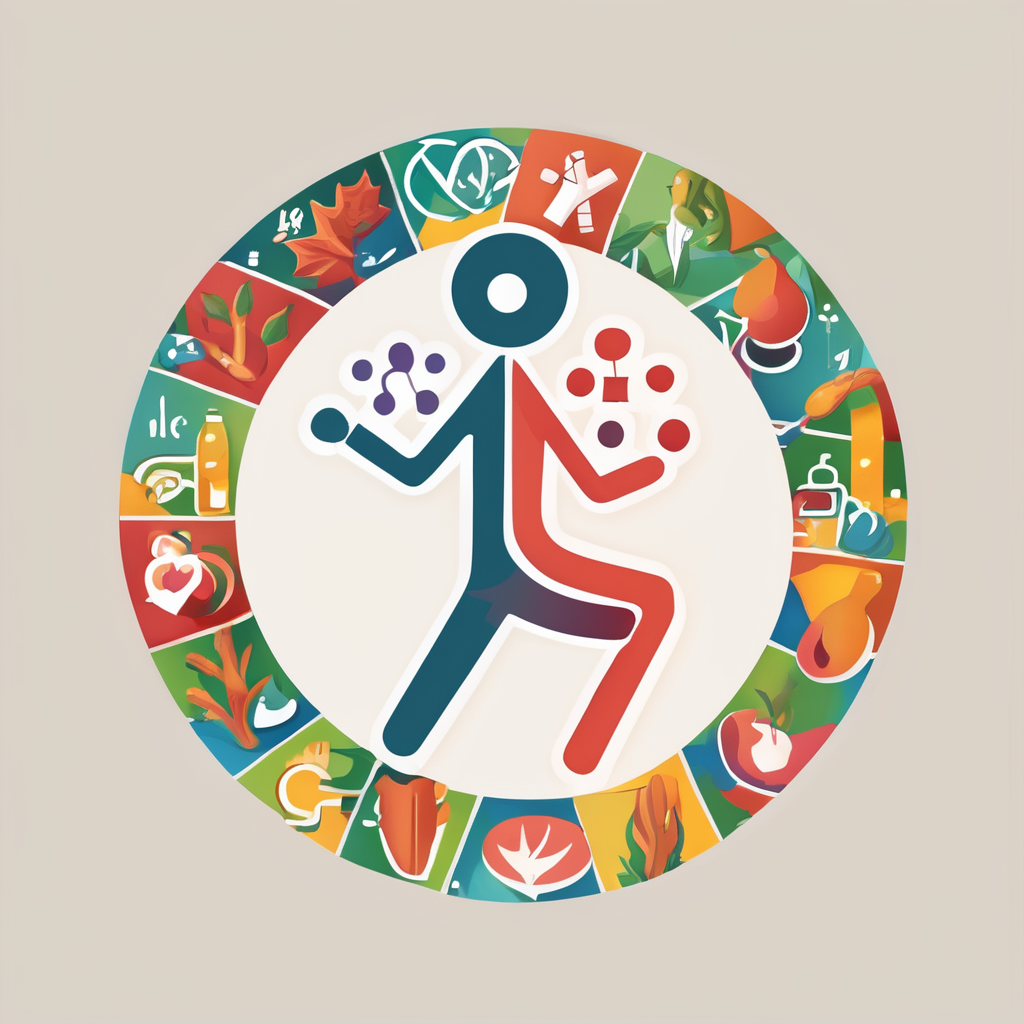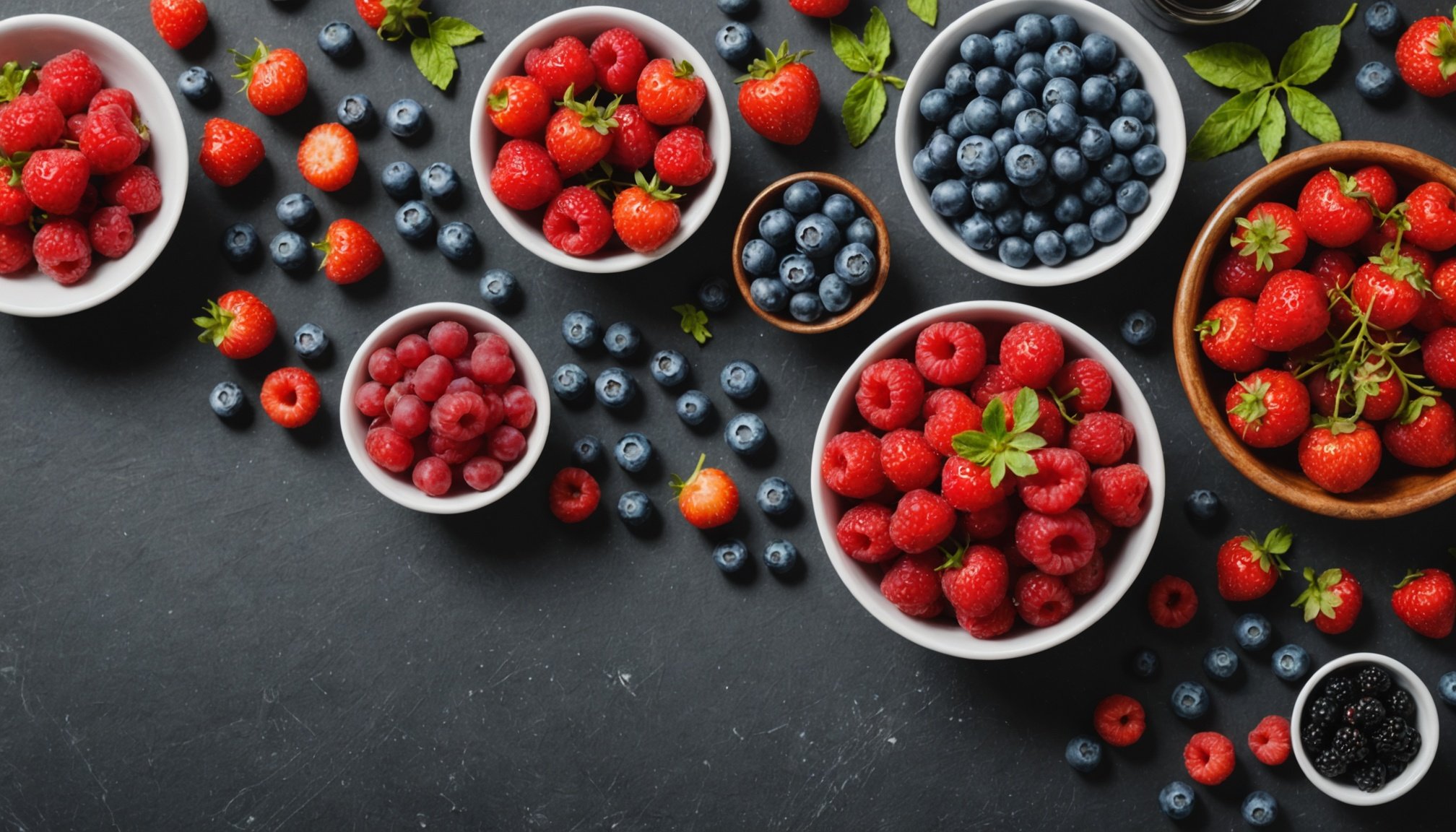Unveiling the Power of Antioxidants: Their Impact on Combating Age-Related Illnesses in the UK
Understanding Antioxidants and Their Role
Antioxidants are molecules that play a crucial role in maintaining our health by combating oxidative stress, a process that can lead to cellular damage. To understand their impact, let’s delve into what antioxidants are and how they work.
Antioxidants are substances that can prevent or slow damage to cells caused by free radicals, unstable molecules that the body produces as a reaction to environmental and other pressures. These free radicals can cause oxidative stress, which is linked to various age-related illnesses.
Also to discover : Optimal Sunscreen Application Timing for UK Beach Lovers: Maximize Your Beach Day Protection!
Endogenous and Exogenous Antioxidants
There are two main types of antioxidants: endogenous and exogenous.
- Endogenous Antioxidants: These are naturally produced by the body. Examples include enzymes like superoxide dismutase and catalase, as well as non-enzymatic molecules like glutathione.
- Exogenous Antioxidants: These are obtained from external sources, such as diet and supplements. Common exogenous antioxidants include vitamins C and E, beta-carotene, and polyphenols like quercetin.
The Impact of Antioxidants on Age-Related Illnesses
As we age, our bodies undergo a series of changes that can increase the risk of various diseases. Here’s how antioxidants can help mitigate these risks.
Also to see : Unlocking Radiant Skin: The Impact of Probiotics on Skin Health for Residents in the UK
Oxidative Stress and Aging
Oxidative stress is a key factor in the aging process. It occurs when the balance between free radical production and antioxidant defenses is disrupted, leading to oxidative damage. This damage can affect cells, proteins, and DNA, contributing to the development of age-related diseases.
| Age-Related Disease | Impact of Oxidative Stress | Role of Antioxidants |
|
|----------------------------|
|
| Alzheimer Disease | Oxidative stress contributes to the formation of amyloid plaques and neurofibrillary tangles. | Antioxidants like vitamin E and polyphenols may help reduce oxidative damage in the brain. |
| Cognitive Decline | Oxidative stress can impair cognitive function by damaging brain cells. | Antioxidants such as quercetin and omega-3 fatty acids may support brain health. |
| Inflammatory Diseases | Oxidative stress can trigger inflammatory responses. | Anti-inflammatory antioxidants like curcumin can help reduce inflammation. |
Studies and Evidence
Numerous studies have highlighted the benefits of antioxidants in combating age-related illnesses.
- A study published in the Journal of Alzheimer’s Disease found that high levels of vitamin E were associated with a lower risk of Alzheimer’s disease in older adults (crossref).
- Research on quercetin, a polyphenol found in fruits and vegetables, has shown its potent antioxidant and anti-inflammatory properties, which can help protect against cognitive decline and other age-related diseases (google scholar).
Practical Insights and Actionable Advice
So, how can you incorporate more antioxidants into your life to benefit your health?
Dietary Sources of Antioxidants
One of the best ways to increase your antioxidant intake is through your diet. Here are some rich sources:
- Fruits: Berries, pomegranates, and citrus fruits are high in antioxidants.
- Vegetables: Leafy greens, bell peppers, and carrots are rich in antioxidants.
- Nuts and Seeds: Almonds, sunflower seeds, and pumpkin seeds are good sources.
- Whole Grains: Brown rice, quinoa, and whole wheat bread contain antioxidants.
Supplements and Lifestyle Changes
While a balanced diet is essential, supplements can also be beneficial. However, it’s crucial to consult with a healthcare professional before starting any new supplement regimen.
- Vitamin C and E Supplements: These vitamins are well-known for their antioxidant properties.
- Polyphenol Supplements: Quercetin and curcumin supplements can provide additional antioxidant support.
- Lifestyle Changes: Regular exercise, adequate sleep, and stress management can also help reduce oxidative stress.
The Role of Gut Microbiota in Antioxidant Activity
The gut microbiota plays a significant role in our overall health, including our antioxidant defenses.
How Gut Microbiota Supports Antioxidant Activity
The gut microbiota helps in the production and absorption of antioxidants. Here are a few ways it does this:
- Production of Short-Chain Fatty Acids: These fatty acids, produced by the gut microbiota, have anti-inflammatory properties and can help reduce oxidative stress.
- Enhanced Absorption of Antioxidants: A healthy gut microbiota can improve the absorption of dietary antioxidants.
- Modulation of Inflammatory Responses: The gut microbiota can influence the body’s inflammatory responses, which are often linked to oxidative stress.
Combating Cellular Senescence with Antioxidants
Cellular senescence, a state where cells stop dividing but remain metabolically active, is another aspect of aging that antioxidants can impact.
The Impact of Senescent Cells
Senescent cells can contribute to age-related diseases by promoting inflammation and tissue dysfunction. Antioxidants can help mitigate this by reducing oxidative stress, which is a key factor in the development of senescent cells.
- Studies on Senescent Cells: Research has shown that antioxidants can delay or prevent cellular senescence by reducing oxidative damage (preprints org).
- Anti-Aging Strategies: Using antioxidants as part of an anti-aging strategy can help maintain cellular health and reduce the accumulation of senescent cells.
Real-Life Examples and Anecdotes
Let’s look at some real-life examples of how antioxidants have made a difference.
The Mediterranean Diet
The Mediterranean diet, rich in fruits, vegetables, whole grains, and healthy fats, is often cited as an example of an antioxidant-rich diet. Studies have shown that people who follow this diet tend to have lower rates of age-related diseases (scholar).
Personal Stories
Many individuals have reported improvements in their health after incorporating more antioxidants into their diet. For instance, a woman in her 60s noticed a significant reduction in her arthritis symptoms after starting a diet rich in berries and leafy greens, both high in antioxidants.
Antioxidants are powerful tools in the fight against age-related illnesses. By understanding how they work and incorporating them into our diet and lifestyle, we can take proactive steps towards maintaining our health as we age.
Final Thoughts
As Dr. David Sinclair, a renowned expert on aging, notes, “Antioxidants are not just about preventing disease; they are about promoting health and well-being” (google).
By embracing a balanced diet, considering supplements when necessary, and maintaining a healthy lifestyle, we can harness the power of antioxidants to live healthier, longer lives.
This article has provided a comprehensive look at the role of antioxidants in combating age-related illnesses, offering practical insights and actionable advice for readers. Whether through dietary changes, supplements, or lifestyle modifications, incorporating more antioxidants into your life can have a significant impact on your health as you age.











